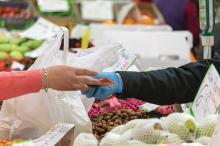Findex - The Voice of the Unbanked

Findex - Ears to the Unbanked
In our first post in this series, we used CGAP's definition of financial inclusion: “... seek to ensure that all households and businesses, regardless of income level, have access to and can effectively use the appropriate financial services they need to improve their lives.“
We mentioned that inadequate access to financial services impacts individual lives as well as the economy as a whole making it a high priority topic for many governments. When governments get involved, challenges tend to be multi-faceted . It really depends on regional requirements and objectives. To do this topic better justice, I decided to address the various aspects in separate posts.
This post summarises findings of the Global Financial Inclusion Index (Findex) report published by the World Bank relating to the “unbanked”. Although, even when people have accounts, their survey found that globally a fifth had not used their accounts over the past 12 months in the reporting period. Therefore those accounts had to be considered as inactive. Some of the following challenges individuals without access to financial services were citing, were also shared by inactive account holders:
-
Too little money: individuals felt that they did not need an account as they simply do not have enough money. This is also closely linked to the next challenge.
-
Costs & Distance: a major share of respondents questioned about the reasons for not using an account cited the costs and distance involved. In addition to account fees, many have to travel longer distances by foot or using public transport to reach an ATM or bank.
-
Use of joint accounts: either as a consequence of the above or a reason on its own, an individual bank account was seen less important when family members shared an account.
-
Lack of documentation is a major obstacle to open an account.
-
Distrust in the financial system: high fees, confusing offers, jargon and demeanour of bank staff nurture distrust.
-
Religious concerns were also cited.
-
Literacy and numeracy: the report found: “In the developing world about half of all adults have a primary education or less. Among unbanked adults the share is close to two-thirds.” To add to this, we discovered early in the development of EXCEED, that people identified as lacking numeracy operate their businesses perfectly. They make sure they get and give correct change in money transactions. However, they are unable to use a calculator or ATM and probably find the completion of bank forms even more daunting. It takes very little training to help them capturing amounts correctly (sequence and comma) with the EXCEED app – and paves the way for using ATMs.
You may be thinking “hold on, have digital payments and mobile money not addressed those challenges? In many parts of the developing world, this is certainly the case (see our post “Findex- Why it Matters”). However, digital payments and mobile money require internet access (see also Digital Inclusion), a in some cases a specific mobile operating system or provider.(in many cases) and not forgetting probably the biggest hurdle, consumer readiness. Often it is linked to a bank account, or initial access requires documentation. And in some regions, even these “new” ways of transacting have already acquired a measure of distrust pertaining to security and reliability. In addition, many still prefer cash-transactions as they find it easier to resolve potential issues face-to-face. I think that a greater market acceptance can be achieved when the many co-existing mobile wallets will interface with each other and are regulated. It seems there is still plenty of work to do.
Sources:
(1) http://www.cgap.org/about/faq/what-financial-inclusion-and-why-it-important
(2) Demirgüç-Kunt, Asli, Leora Klapper, Dorothe Singer, Saniya Ansar, and Jake Hess. 2018. The Global Findex Database 2017: Measuring Financial Inclusion and the Fintech Revolution. Washington, DC: World Bank.




Add new comment